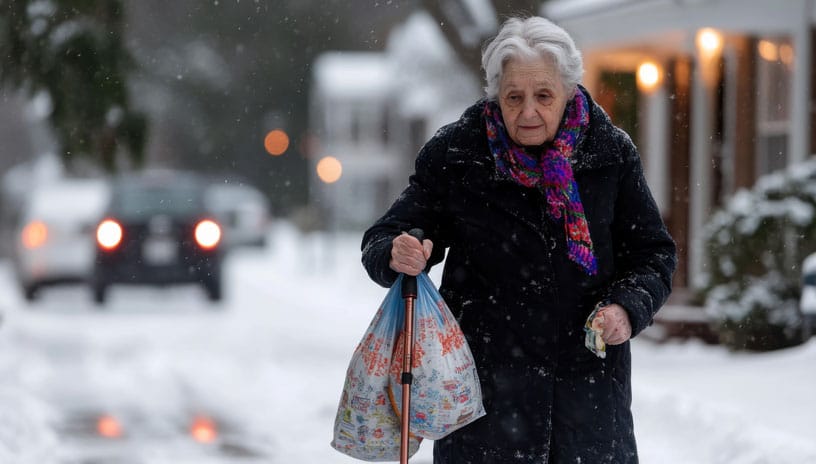Checking on Your Neighbor When It Matters

Severe weather can put lives at risk, especially for those who feel alone or vulnerable.
Checking on your neighbor when severe weather threatens is more than a kind gesture. It’s a crucial step toward protecting those in need. When enough individuals accept this responsibility, we help foster community resilience. This leads us to address three essential questions.
Who is My Neighbor?
A neighbor is not merely the family next door or the friendly face we greet in passing. It’s anyone whose life intersects with ours. It's someone who needs our care and connection. This is especially true during times of severe weather.
So, who is your neighbor? It could be any of the following:
- The senior couple who lives down the street. They quietly manage on their own, even as icy sidewalks make it difficult for them to step outside.
- A single mother at the end of the block. She cares for her kids while worrying about dwindling supplies during a snowstorm.
- A longtime friend caring for a spouse with dementia. Severe weather can prevent them from accessing groceries, medicines, and other supplies.
- A homebound individual who relies on a security or medical alert device. She fears feeling "cut off" from assistance when severe weather strikes.
When severe weather threatens, these neighbors may not always ask for help. They might not want to impose, or they may believe they can manage on their own.
Recognizing your neighbors means looking beyond the surface and “seeing” those who could benefit from the extra care and connection.
Why Do These Contacts Matter?
A “friendly contact” is a lifeline for those in need. Severe weather can be physically and mentally isolating. However, the simple act of reaching out can remind your neighbor that they’re not alone.
In addition:
- Early connection and intervention can help address needs before they become crises.
- Regular check-ins create a safety net for those at risk and help mitigate potential safety and medical issues.
- Feeling cared for can reduce anxiety and improve mental health during challenging times.
- A timely visit or call can help reduce fears of isolation.
How Do I Check On My Neighbors?
- Create a mental or written list of neighbors who may need help.
- Reach out before severe weather to offer help with preparation, such as picking up groceries or medicines.
- Avoid vague offers of help like, “Let me know if you need something.” Instead, ask, “Can I bring you groceries or help you set up a weather radio?”
- Send them a quick text, call, or connect through social media.
- If it’s safe, knock on their door to ensure they’re okay, especially if they’re not responding to calls or messages.
Pay close attention to these indicators during your check-in:
- Health concerns: Do they seem disoriented, ill, or unusually fatigued?
- Environmental issues: Is their home cold, dark, or showing signs of damage?
- Resource shortages: Do they mention a lack of food, water, medication, or other essentials?
- Emotional distress: Do they express feelings of anxiety, fear, or helplessness?
Regular contact helps build trust and encourages open communication. Such practice demonstrates care for your neighbors and helps them feel safe.
Your Role in Severe Weather Preparedness
Severe weather is unpredictable, but your actions can make a measurable difference. By checking on your neighbors, you can help keep them safe, provide comfort, and even save a life.
Let’s weather the storm together. Start today by reaching out. It could be your most meaningful action.

